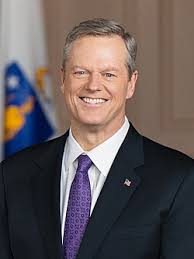Charlie Baker: A Leader Shaping Governance in Massachusetts

Introduction
Charlie Baker, the former Governor of Massachusetts, has significantly influenced the state’s governance since he took office in January 2015. His leadership style and policies have earned him recognition not just locally, but nationally. In a time where political discourse often divides, Baker exemplifies a pragmatic approach to leadership, merging fiscal responsibility with progressive values.
Background and Early Initiatives
Baker, a member of the Republican Party, served as Massachusetts’ 72nd governor, becoming the first Republican to win election in the state since 2002. With a background in business, having previously worked as CEO of Harvard Pilgrim Health Care, Baker’s approach to public service has been marked by a focus on healthcare reform, economic development, and education. One of his notable initiatives included the “Massachusetts Innovation Economy Partnership”, aimed at fostering innovation in technology and workforce development.
Key Achievements During His Tenure
Under Baker’s leadership, Massachusetts saw its unemployment rate drop to a record low, coupled with a surge in the state’s economy, attributed to his pro-business policies. His administration prioritised investments in education and transportation. Initiatives such as the “Student Opportunity Act” aimed at improving funding for public schools, and the expansion of commuter rail service were critical in addressing long-standing issues within the state’s infrastructure.
However, Baker also faced challenges, particularly with the COVID-19 pandemic, which tested his leadership. His administration implemented strict public health measures to contain the virus, alongside efforts to promote vaccination, drawing both praise and criticism from various quarters.
Conclusion and Future Endeavours
Charlie Baker’s tenure as governor has left a lasting impact on Massachusetts, marked by innovative policies and a collaborative spirit. As he prepares to leave office in January 2023, his influence will continue to resonate in state politics, particularly as he navigates the next chapter of his career. Whether he will remain active in politics or transition to another sector remains to be seen. Nevertheless, Baker’s ability to navigate complex political landscapes may well set the stage for his continued involvement in governance and community engagement.









